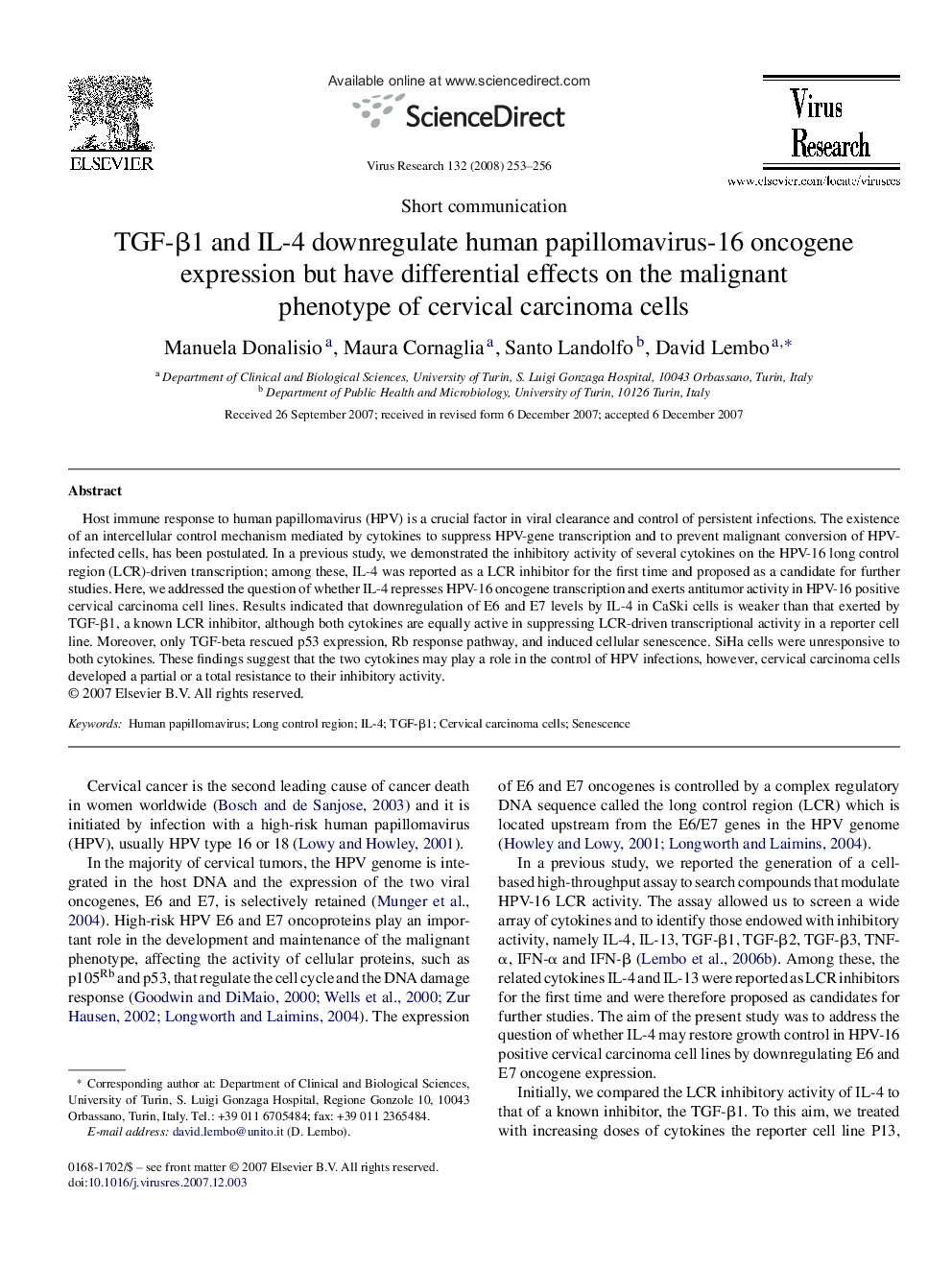| Article ID | Journal | Published Year | Pages | File Type |
|---|---|---|---|---|
| 3430537 | Virus Research | 2008 | 4 Pages |
Host immune response to human papillomavirus (HPV) is a crucial factor in viral clearance and control of persistent infections. The existence of an intercellular control mechanism mediated by cytokines to suppress HPV-gene transcription and to prevent malignant conversion of HPV-infected cells, has been postulated. In a previous study, we demonstrated the inhibitory activity of several cytokines on the HPV-16 long control region (LCR)-driven transcription; among these, IL-4 was reported as a LCR inhibitor for the first time and proposed as a candidate for further studies. Here, we addressed the question of whether IL-4 represses HPV-16 oncogene transcription and exerts antitumor activity in HPV-16 positive cervical carcinoma cell lines. Results indicated that downregulation of E6 and E7 levels by IL-4 in CaSki cells is weaker than that exerted by TGF-β1, a known LCR inhibitor, although both cytokines are equally active in suppressing LCR-driven transcriptional activity in a reporter cell line. Moreover, only TGF-beta rescued p53 expression, Rb response pathway, and induced cellular senescence. SiHa cells were unresponsive to both cytokines. These findings suggest that the two cytokines may play a role in the control of HPV infections, however, cervical carcinoma cells developed a partial or a total resistance to their inhibitory activity.
